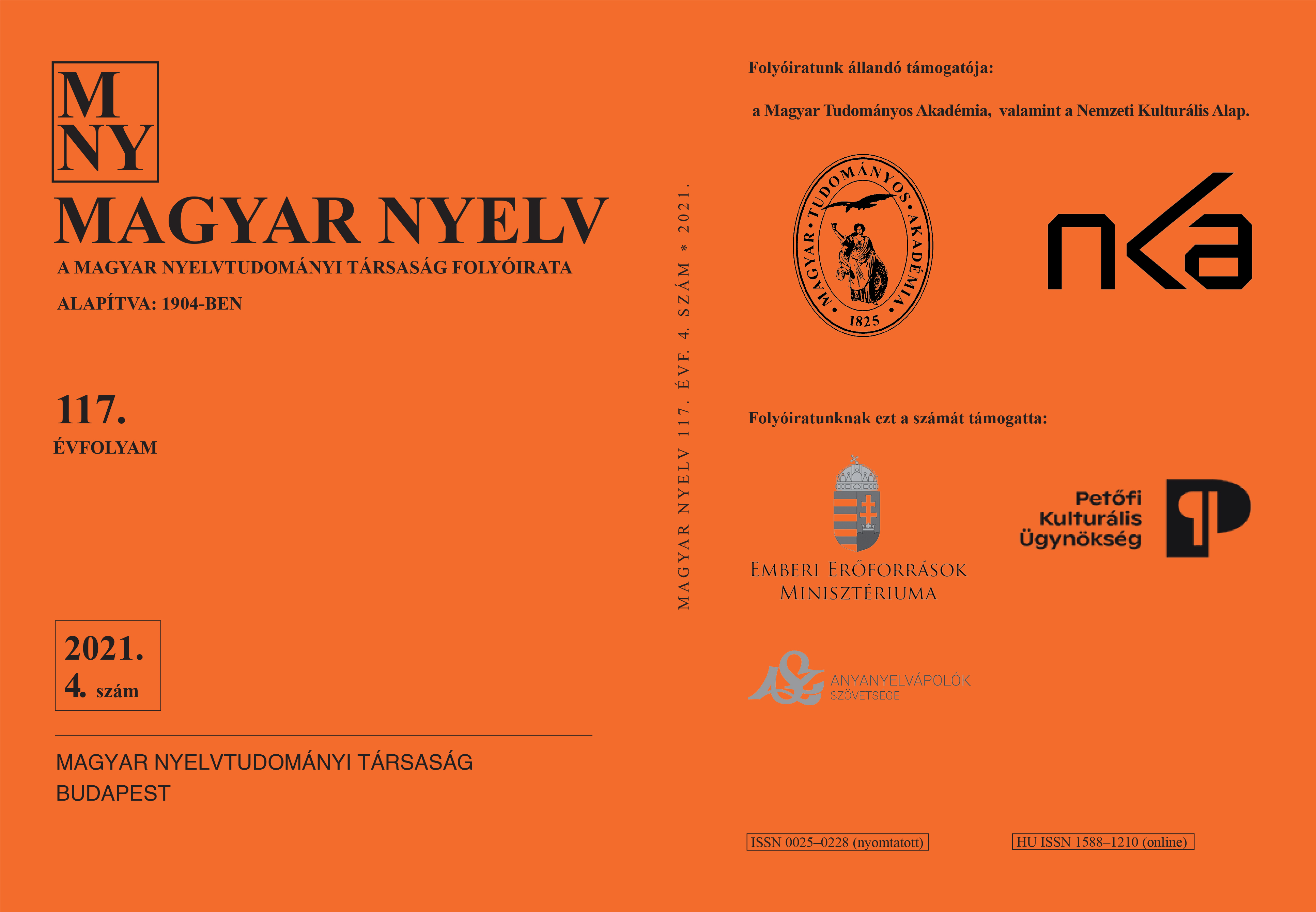Gréczi-Zsoldos, Enikő: Péter Pomozi ed., Palóc olvasókönyv. Nyelvi és irodalmi kalandozások [A Palóc reader: Linguistic and literary adventures]
Abstract
A Magyarságkutató Intézet Kiadványai sorozat 10. köteteként megjelent szép kiállítású könyv „palóc mesék”-et tartalmaz „kicsiknek és nagyoknak” – ahogy a kötet szerkesztője, Pomozi Péter fogalmaz a könyv előszavában. Nemcsak a könyv alcímében és első fejezetcímében megjelenő kifejezések („mesék”, „kalandozások”) utalnak arra, hogy a palóc kultúrtáj misztikumát és romantikáját szeretnék bemutatni a kötet összeállítói, de a bevezetőből, illetve a könyv olvasásához mellékelt útmutatóból, valamint a könyvben található szöveggyűjtemény tematikájából is érzékelhető, hogy a „régi világot”, az egykori paraszti élet idilljét szeretnék közvetíteni, a természettel együtt élő ember világát, azt a világot, amelynek mindennemű dolgáról meséket, mondákat alkotott az emberi képzelet. Ezekből kapnak ízelítőt a könyvet kézbe vevő érdeklődő olvasók, célzottan az iskolás gyermekek és a „kicsit nagyobbak”, ahogy a szerkesztők fogalmaznak az ajánlásban. Fontos küldetés ez a mai információs társadalmunkban, akkor, amikor a hagyományok, a népi értékek tisztelete az urbanizálódott ember racionalizált és a virtuális tér uralta világképének nem vagy csak csekély mértékben alkotóeleme.
Downloads
Published
Issue
Section
License
Copyright (c) 2022 Magyar Nyelv

This work is licensed under a Creative Commons Attribution-NonCommercial-NoDerivatives 4.0 International License.
Magyar Nyelv is a Diamond Open Access periodical. Documents can be freely downloaded and duplicated in an electronic format, and can be used unchanged and with due reference to the original source. Such use must not serve commercial purposes. In the case of any form of dissemination and use, Hungarian Copyright Act LXXVI/1999 and related laws are to be observed. The electronic version of the journal is subject to the regulations of CC BY-NC-ND (Creative Commons – Attribution-NonCommercial-NoDerivatives).
The journal permits its authors, at no cost and without any temporal limitation, to make pre-print copies of their manuscripts publicly available via email or in their own homepage or that of their institution, or in either closed or free-for-all repositories of their institutions/universities, or other non-profit websites, in the form accepted by the journal editor for publication and even containing amendments on the basis of reviewers’ comments. When the authors publicize their papers in this manner, they have to warn their readers that the manuscript at hand is not the final published version of the work. Once the paper has been published in a printed or online form, the authors are allowed (and advised) to use that (post-print) version for the above purposes. In that case, they have to indicate the exact location and other data of the journal publication. The authors retain the copyright of their papers; however, in the case of an occasional secondary publication, the bibliographical data of the first publication have to be included.



